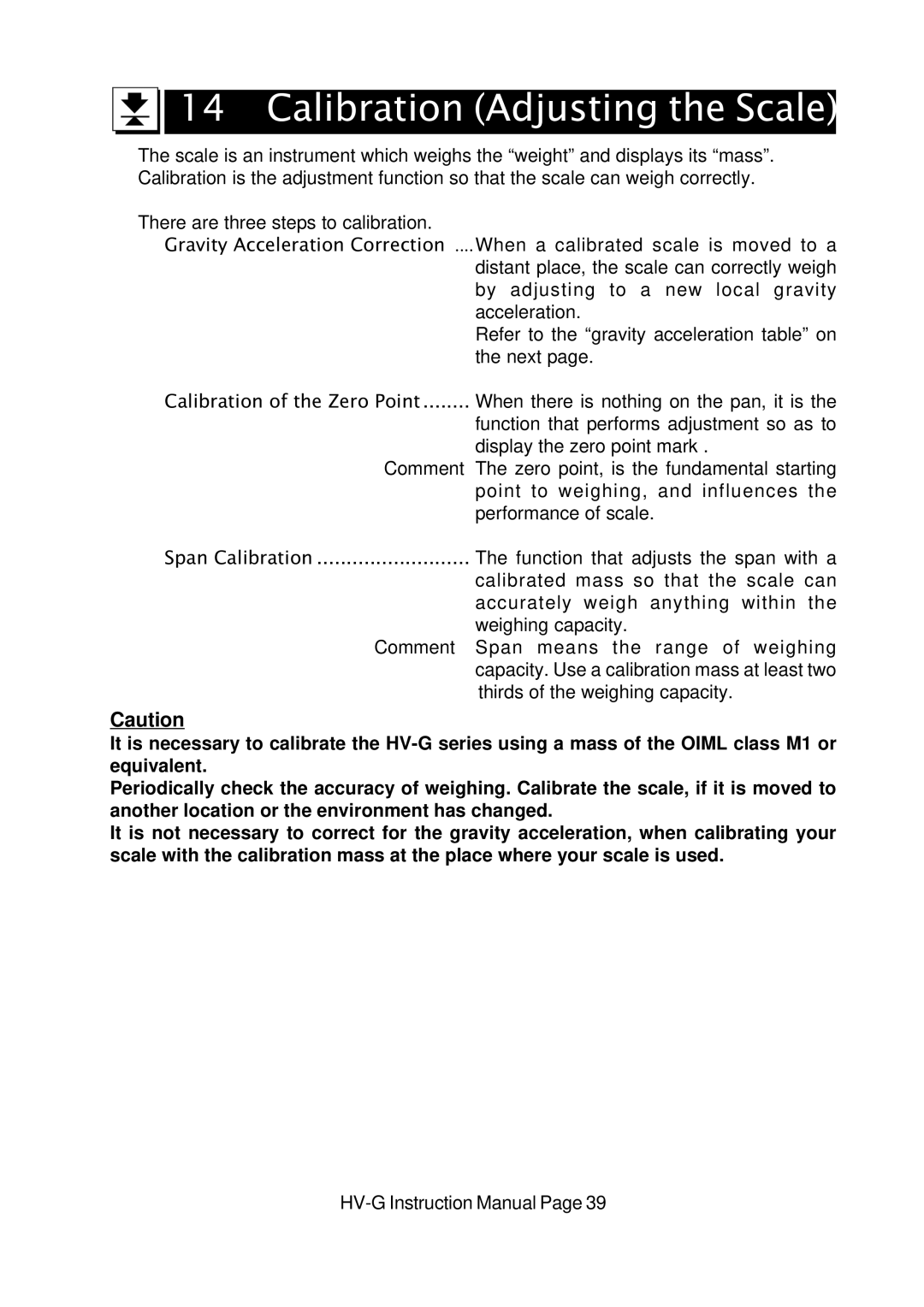




 14 Calibration (Adjusting the Scale)
14 Calibration (Adjusting the Scale)
The scale is an instrument which weighs the “weight” and displays its “mass”. Calibration is the adjustment function so that the scale can weigh correctly.
There are three steps to calibration.
Gravity Acceleration Correction .... When a calibrated scale is moved to a
distant place, the scale can correctly weigh by adjusting to a new local gravity acceleration.
Refer to the “gravity acceleration table” on the next page.
Calibration of the Zero Point ........ When there is nothing on the pan, it is the
function that performs adjustment so as to display the zero point mark .
Comment The zero point, is the fundamental starting point to weighing, and influences the performance of scale.
Span Calibration .......................... The function that adjusts the span with a
calibrated mass so that the scale can accurately weigh anything within the weighing capacity.
Comment Span means the range of weighing capacity. Use a calibration mass at least two thirds of the weighing capacity.
Caution
It is necessary to calibrate the
Periodically check the accuracy of weighing. Calibrate the scale, if it is moved to another location or the environment has changed.
It is not necessary to correct for the gravity acceleration, when calibrating your scale with the calibration mass at the place where your scale is used.
